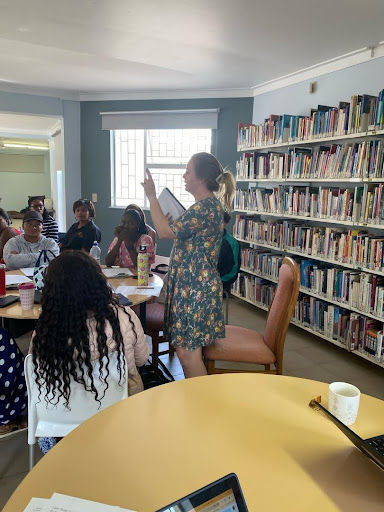Agency and Home Learning in the Primary at WIS
- Windhoek International School
- Feb 2, 2024
- 4 min read
Dear Parents,
The cornerstone of our Primary Years Programme (PYP) revolves around the cultivation of agency among our students. Agency is a pivotal aspect of our educational philosophy. As you observe students in PYP classrooms, you witness them engrossed in becoming experts, delving into inquiries, developing communication, research, and critical thinking skills. Agency, in this context, is the driving force behind their self-directed learning. In simple terms, it is the ability and inclination of students to take ownership of their learning journey. “When students are agents in their learning, they are more likely to have “learned how to learn” – an invaluable skill that they can use throughout their lives.” This is what the concept note on Student Agency for 2030 from the Organization for Economic Cooperation and Development (OECD) reads. Words synonymous with agency are ownership, independence, self-directed learning, voice, choice and responsibility.
The development of agency in students requires hard work. Looking at the iceberg below, you can see how intentional the development of agency is. It requires many actions on the teacher and school’s part.

During my attendance at the Grade 5 learning celebration this week, I witnessed a demonstration of agency among learners. They confidently shared insights into states of matter and articulated their learning process. Behind this display of agency lies a well-crafted unit design by the teacher. Prior to the celebration, the teacher curated learning experiences that empowered students to present with confidence and share their learning. This included structured opportunities for them to articulate their knowledge about states of matter, compose well-structured explanation texts, and design digital artifacts. Throughout the process, the students were held accountable to clearly defined learning intentions and success criteria. They received explicit instruction and constructive feedback, fostering a supportive environment for their growth. Collaboration with peers also played a role.
Developing voice, choice and ownership
To enhance student agency and amplify their voice, choice, and ownership at WIS at a school-wide level, we are also exploring various avenues in collaboration with the student council. Ms. Sinead has proposed several ideas aimed at fostering a culture of active participation. We welcome more ideas from our community members!
Suggestion box: Each grade can have a box where students can write down their suggestions and place them in the box. This is a great way for shy students to write down their thoughts anonymously. The box can be collected at the end of every week or every two weeks by the student council to deliberate upon.
Google form: This can be conducted by the older students to get their point of view. We can provide them with guided questions to avoid ambiguity and ensure that the feedback is focused on specific aspects of their experiences or opinions.
Peer interviews: Student council members could take some time during break to interview different students about their experiences and gather insights on what they enjoy and what they would like to see improved. The feedback can be presented at the assembly to encourage all students to speak up.
Interactive bulletin boards: These can be set up around campus and students can post sticky notes or drawings to share their ideas and feedback. We'll also need to provide guided questions.
Agency and our Home Learning Policy
We are excited to share with you that we have updated our Home Learning Policy, developed to ensure consistency across our school and to support the overall mission of Windhoek International School. This policy will be implemented by all Homerooms after the March break. In line with the International Baccalaureate Primary Years Programme (IB PYP), our home learning policy supports the development of independent learning skills and agency, reinforces classroom learning, and fosters a sense of responsibility and independence among our students.
We believe that home learning should never be a source of stress at home. To ensure this, we involve students in the creation of home learning tasks. This collaborative approach empowers students but also transforms home learning into an opportunity to consolidate and practice areas where additional support may be needed. We believe that by fostering this sense of ownership and engagement, we can make home learning a positive and enriching experience for both students and their families.
What does it look like?
Daily Time Allocation (Total time)
Early Years 3/4: Up to 15 minutes
Grade 1-2: 15-30 minutes
Grade 3-5: 30-45 minutes
Reading: Every student is required to engage in daily reading. This can include individual reading, reading with a family member, or being read to. Reading is encouraged in the home language.
Mental Maths: Students are encouraged to practise mental maths skills daily using age-appropriate activities.
Choice Board of Home Learning Engagements: A variety of engaging activities across different subject areas. We encourage students to complete two engagements per week, in addition to daily reading. The home learning engagements will be created with student input, so that their learning is extended in a fun way, fostering independence and ownership.
Seesaw Submission Platform
All completed home learning activities will be uploaded to the Seesaw platform, facilitating communication between teachers, students, and parents. Please support your child in uploading completed home learning to SeeSaw, using any device at home.
Monitoring, Support, and Feedback
Teachers will monitor home learning progress and provide constructive feedback on Seesaw. The approach to feedback will be consistent across the school. Parents are encouraged to communicate if additional support is needed.
The role of feedback in home learning
Good feedback encourages a culture of learning, creates an inclusive and transparent environment, motivates learners to improve, and promotes agency among students. We encourage you to leave feedback when your child submits home learning. Here are some useful tips:
Sentence 1: Say what you noticed ...Be specific!
Sentence 2: A reflective question to help your child improve ...
Sentence 3: How the learning has inspired you or caused you to reflect?
Notice | Question | Reflect |
I noticed that you… I observed that you… I realised that you… I saw that you… I recognized that you... | How might you…? What are some of the things you…? How could you…? How did you decide to…? What do you think…? What might be your thoughts about…? | After reading/watching/viewing your ______, I realised that… Now that I have seen your ______, I understand that… Your learning has caused me to… I used to think that… But, now I think… Your ______ has made me think of... You have inspired me to… One question I still have is… |
We appreciate your partnership in fostering agency, independence, creativity, and a love for learning.
Warm regards,
Marcelle van Leenen
Primary School Principal











Comments